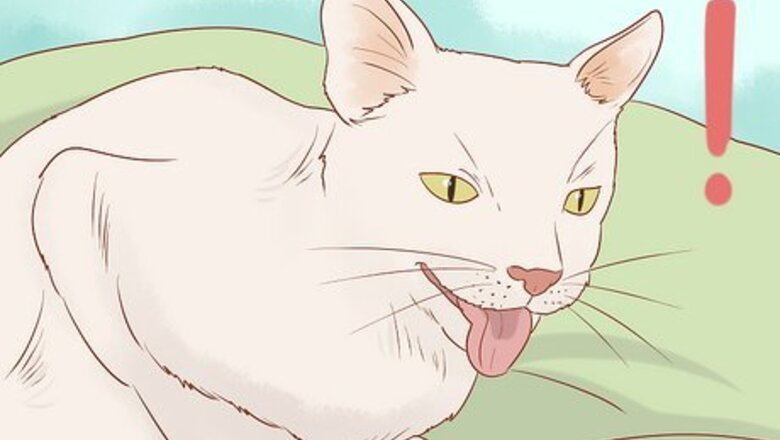
views
She’s panting.
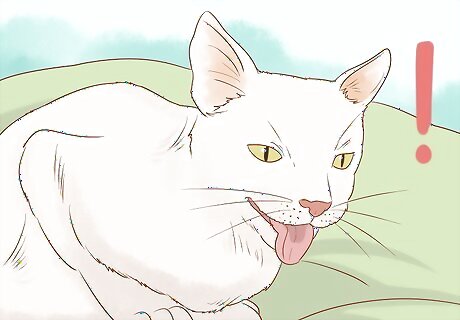
It is completely normal for your cat to breathe heavily during labor. Your feline friend is exerting a lot of energy during birth and is likely pretty uncomfortable. Once it’s over, she’ll be noticeably calm, so if she continues to pant after the first couple of kittens are born, there are likely more on the way. Cats are pretty self-sufficient during the birthing process and require very little assistance, so if your cat is panting, restless, and licking for more than 24 hours without any signs of straining, it’s best to contact a veterinarian for advice on how to proceed.
She’s making a lot of noise.
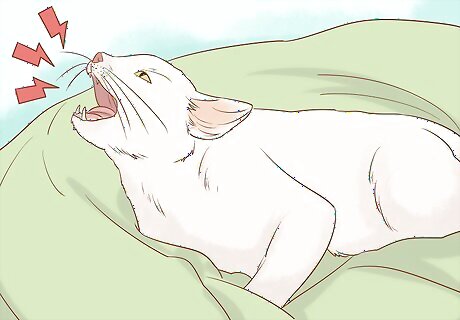
Feline labor, much like for humans, is painful. So cats in active labor are pretty vocal, but there’s usually no need to worry. As the kittens move through to the birth canal, your cat may make a chirping or yowling sound. If your cat is screaming for longer than an hour without any sign of delivery, get in touch with your vet as this could be a sign of distress.
She’s straining.
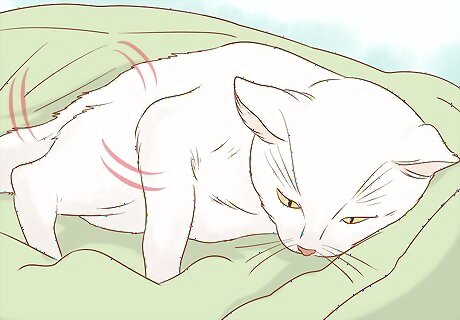
Cats bear down in the second and third stages of labor. This probably looks like she’s trying to use the bathroom. Kittens may seem tiny but serious force is required to push each through the cat’s birth canal. In between births, your cat will likely clean and tend to her kittens and then push for at least 10-15 minutes. After the first birth, kittens should come every 10 minutes to an hour. Contact your vet if your cat is straining for longer than 25-30 minutes, as this could be a sign of an obstruction.
There is a fluid-filled bubble in the birth canal.
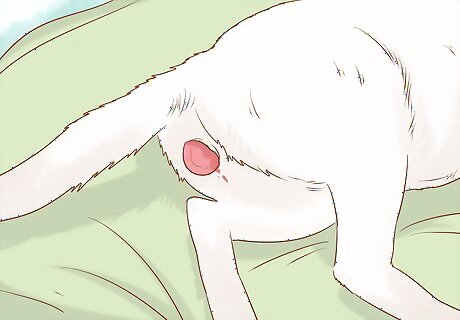
Yep, that’s a kitten. It’ll look like a dark patch poking through your cat’s vagina. However, if the fetus is not delivered within the first 10 minutes of crowning, or emerging from the birth canal, it might be stuck. If this happens, it’s best not to wriggle the kitten free on your own, which could lead to more discomfort for your cat and further difficulties for the kitten. Contact your vet for more information on how to proceed.
She is licking her genital area.
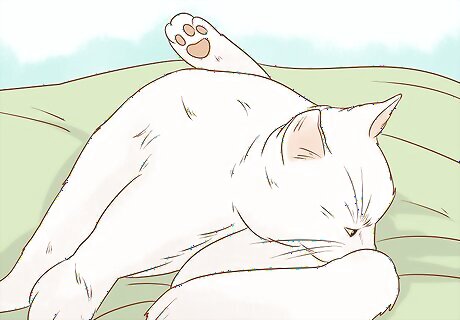
Licking dissolves the thin membrane surrounding the kitten. The double-layered sac is filled with a slimy liquid, which allows the kittens to move smoothly through the birth canal. As the cat senses the kittens shifting, she’ll lick the area repeatedly.
A placenta has not yet passed after the last kitten.
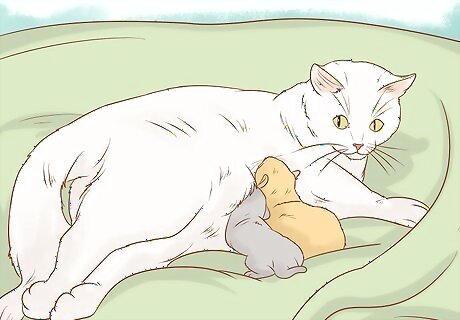
You can expect placentas to pass approximately 15 minutes after each birth. However, if you’re waiting longer for the placenta (rust-colored, fleshy mass) to pass after a kitten is born, there’s a chance you’re also waiting on more kittens. Sometimes 2 or 3 kittens are born before any of their placentas are passed. It’s not a perfect science, but try to keep track if possible. Cats will also eat the placenta after it has passed. This is totally normal! If 1 or more kittens are born without the placenta passing shortly after, contact your vet. Placentas remaining in the uterus may lead to infection.
She is aggressive or highly protective.
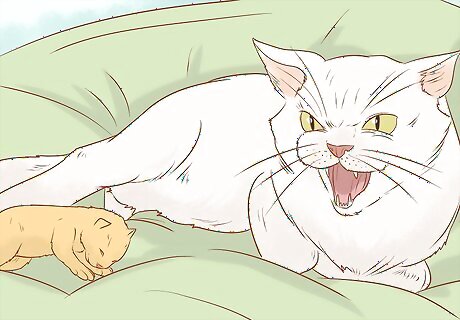
This may be unsettling, but it’s not permanent. Especially as she’s giving birth, your cat’s main priorities are to protect herself and her newborn kittens. The process of labor is a bit of a shock to her system, and she’s only getting adjusted. She’ll begin to calm down after she has finished delivering her little ones. Do not raise your voice or correct this behavior using tools like spray bottles. This may only escalate her protectiveness. Aggression sometimes continues for 3-4 weeks after kittens are born as her hormones regulate. This is especially true if your cat developed this behavior during her pregnancy. Make note of these mood changes and talk to your vet about what you can do to make your cat feel safe during this time.
She isn’t fully focused on newborn kittens.
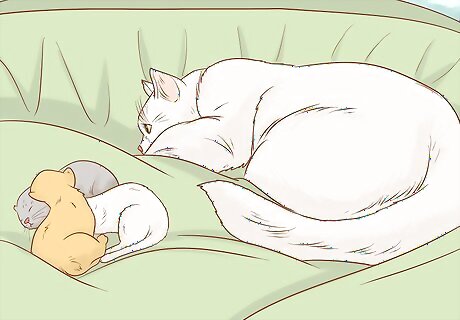
Cats will briefly tend to their kittens after they’re born, then resume pushing. This bonding time between the mom and newborns is precious, but she won’t be able to rest and care for her newborns until she delivers the rest of her litter. Depending on how many kittens she’s expecting, you might notice her develop a rhythm: pant, push, lick the kitten, nudge the kitten to nurse, and repeat. If you notice your cat withdrawing from her kittens completely, like not cleaning or nursing them, contact your vet for the next steps. Make sure to give your cat some space to bond with her kittens, so she feels relaxed and comfortable. There will be plenty of time later on for you to snuggle the new arrivals. It’s also best not to leave the room at any time during the birthing process, as your cat may be tempted to follow you.
She is passing discharge.
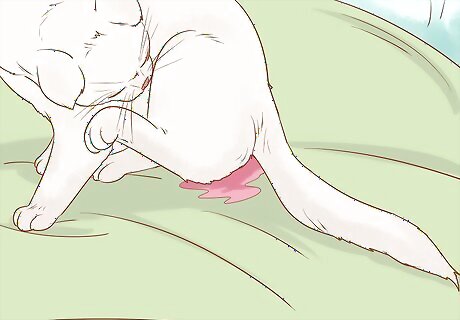
This might be clear or tan in color. As contractions become stronger during active labor, you can expect a small amount of discharge to pass through your cat’s birth canal. The discharge might even be tinged with blood, but this is also normal. Contact your vet immediately if your cat is bleeding excessively, as this is almost certainly a sign of distress. Inform your vet if your cat is experiencing bloody discharge for longer than a week after giving birth.
She’s not hungry.
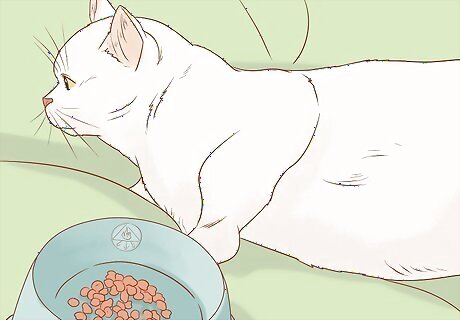
The kittens need to eat and so does the mom. While cats don’t usually look for food immediately after giving birth, they’ll likely start to have an appetite in the hours that follow. Although, this varies and may take up to 24 hours. Talk to your vet about specific dietary needs and requirements to make sure both cat and kittens are getting all their necessary nutrients.
Fewer kittens were delivered than appeared on imaging.
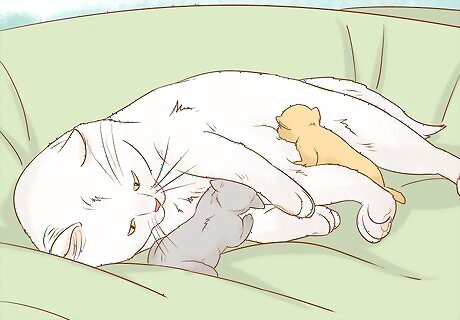
In all the excitement, it’s important to do a headcount. Although this seems obvious, the miracle of birth may distract you from counting those kittens. If a prior X-ray or ultrasound revealed more kittens than were ultimately delivered, seek veterinary advice on how to move forward. An emergency C-section may be required. You can expect your vet to do more imaging to see how many kittens are left in the cat’s uterus. Vets may also want to do bloodwork to make sure the mom is calcium and blood sugar levels are normal. Finally, an ultrasound may be done to check the kittens’ heartbeats.
















Comments
0 comment